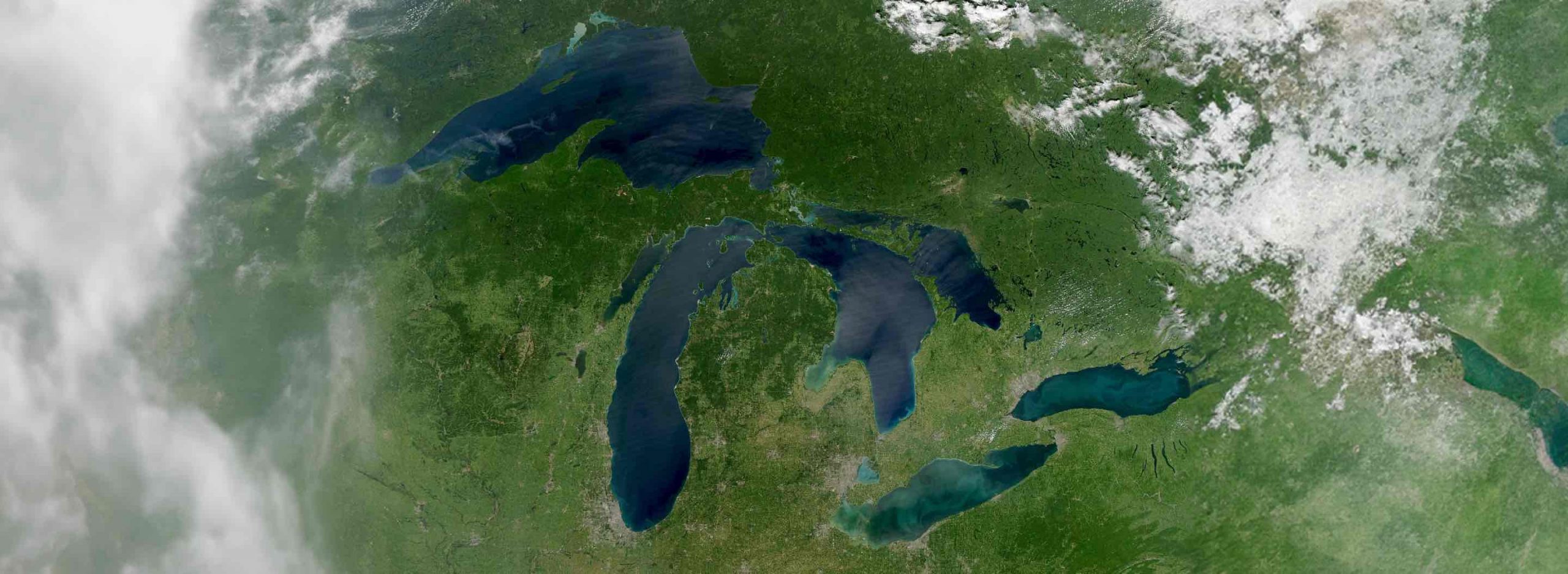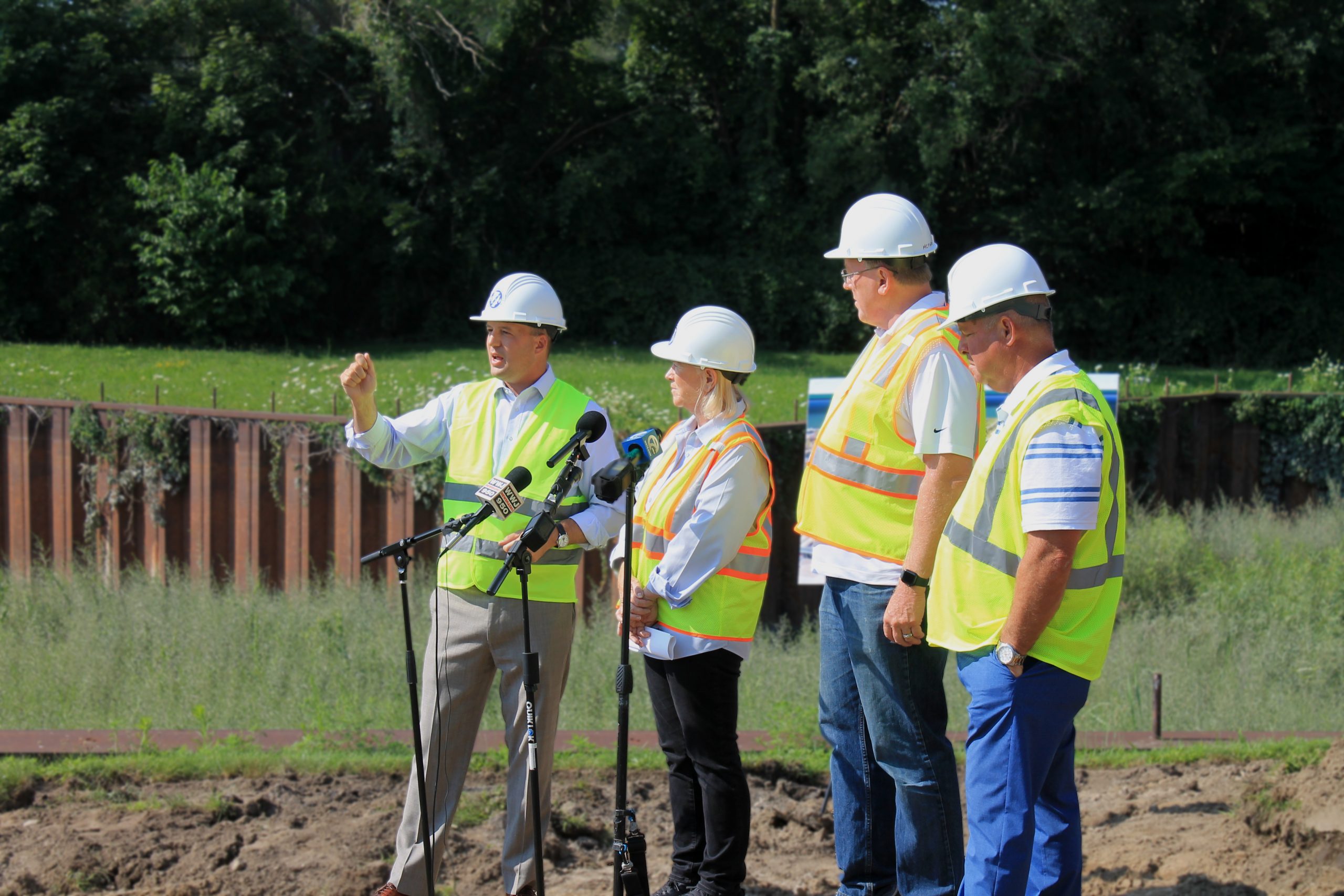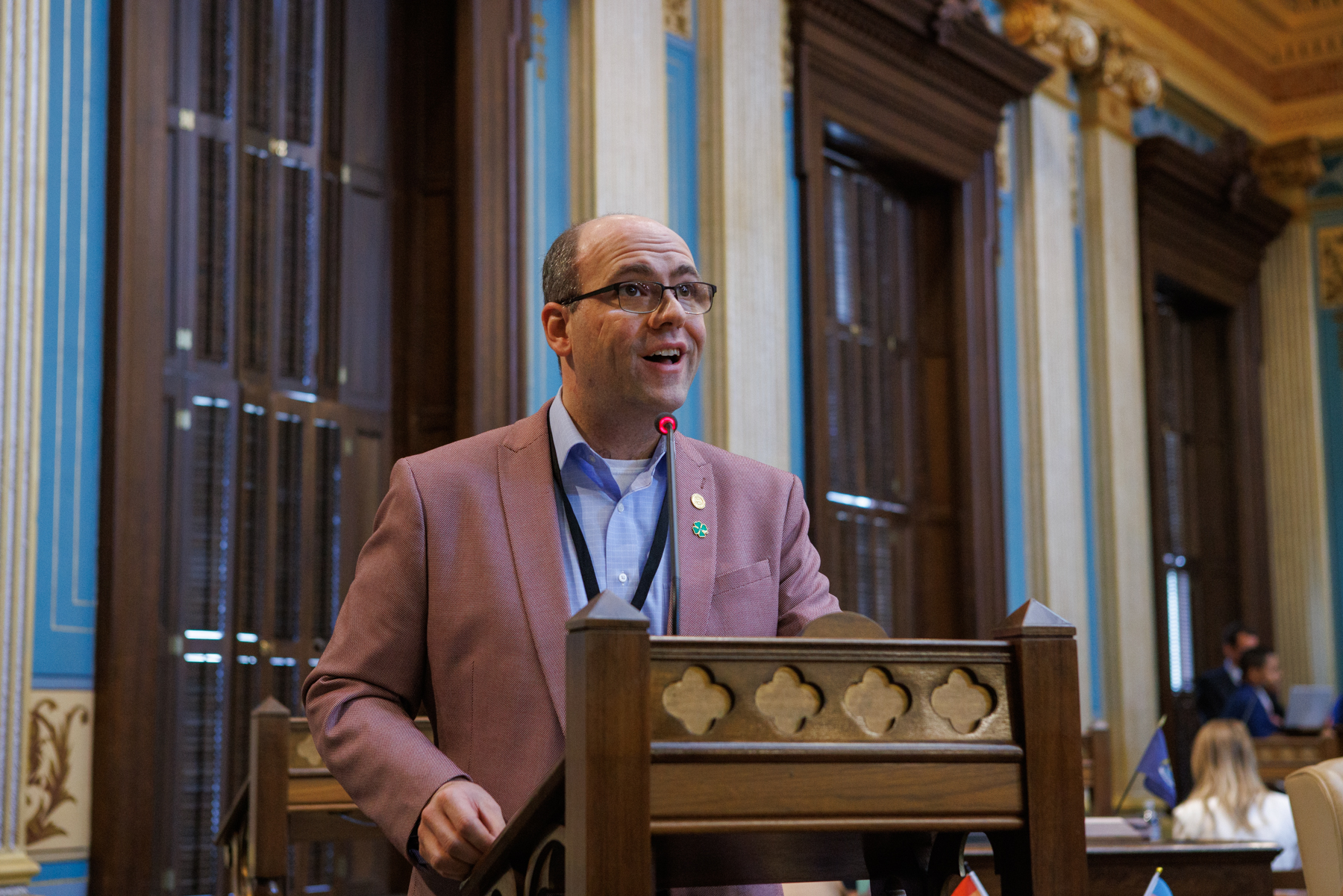During Water Quality Month, Senate Democrats reflect on all the things Michigan’s lakes and fresh water provide and the Legislature’s work to protect them for future generations
The Great Lakes — Superior, Michigan, Huron, Erie, and Ontario — are more than just a scenic backdrop for summer vacations; they are the lifeblood of our state. And with more than 11,000 inland lakes and countless rivers and streams, there is no other state in the nation more influenced, shaped, or connected by fresh water than Michigan.

From Detroit and Grand Rapids to Traverse City and Mackinac Island, Michigan’s water resources provide unparalleled benefits to communities across the state, acting as a source of drinking water, economic opportunity, transportation, recreation, and so much more. However, in recent years, these bodies of water have faced threats from pollution, invasive species, and climate change. Protecting and preserving the state’s lakes requires continuous effort, robust infrastructure, and evidence-based policies.
Fortunately, our Senate Majority for the People, knowing the important role water plays in every aspect of Michiganders’ lives, has made it a priority to safeguard our water quality for future generations.
What Michigan’s Lakes Do for Us

Sen. Kevin Hertel, Senate Majority Leader Winnie Brinks, and Sen. John Cherry enjoy Michigan’s many lakes and rivers with friends, family, and constituents.
Known across the country and world as the Great Lakes State, Michigan serves as the source of 20% of Earth’s total fresh water. Our more than 3,000 miles of shoreline is proudly featured on our state quarter and serves as the inspiration behind our state motto and nickname. From the Great Lakes to inland lakes, rivers, and streams, Michigan’s waterbodies are ecologically, culturally, and historically rich places that serve as critical resources for residents’ quality of life.
Together, the five Great Lakes hold approximately six quadrillion gallons of fresh water, providing drinking water to over 40 million people throughout the United States and Canada, including nearly half of Michigan’s population. These freshwater environments also support diverse ecosystems and provide essential habitats for more than 3,500 plant and animal species like walleye, trout, and award-winning bass.
Not only are Michigan’s various waterways integral to the health of our communities, but they are also a cornerstone of the state’s economy, driving industries such as commercial and recreational fishing, shipping, and tourism. The Great Lakes generate more than 1.5 million jobs and $60 billion in wages annually, and a recent report also found that Lake St. Clair brings an additional $1.6 billion to Southeast Michigan through businesses, recreational opportunities and more than 18,000 jobs.
What We’re Doing for Michigan’s Lakes
From ensuring clean water is coming out of the faucet at home, school and child care facilities to providing a stable paycheck to thousands of families, Michigan’s water sources provide so much to residents’ everyday lives. To ensure our state’s future generations can continue to enjoy these benefits, Senate Democrats have been leading the fight to protect and preserve Michigan’s lakes by making transformational investments in water infrastructure, bolstering water monitoring efforts, and passing innovative environmental policies.

Sen. Kevin Hertel speaks with local leaders at the Chapaton Retention Basin in St. Clair Shores, where a new project to address combined sewer overflows is underway. Photo Credit: Megan Dombrowski, Michigan Senate Democrats
Representing communities along the shoreline of Lake St. Clair who have experienced basement flooding and beach closures, Sen. Kevin Hertel believes that protecting this natural resource for current and future generations cannot be a partisan issue — it’s a community issue. Throughout his time in office, Sen. Hertel has been a staunch advocate of policies and budget items that prioritize the quality of our water infrastructure, which has been poorly rated in prior years.
Working together with both Democrats and Republicans at the federal, state, and local level, Sen. Hertel has secured over $95 million for local water infrastructure projects during his time in the State Legislature. One of the most impactful appropriations he secured was $72 million in the 2023 state budget for the Chapaton Retention Basin, which will allow Macomb County to construct additional system storage that can be utilized during heavy rain events. Once complete, this project will help reduce combined sewer overflows into Lake St. Clair by 40%.

Sen. Kevin Hertel is joined by Macomb County Public Works Commissioner Candice Miller and St. Clair Shores Mayor Kip Walby for a conversation by the lake, where the bipartisan trio discussed their efforts to improve local water infrastructure. Photo Credit: Megan Dombrowski, Michigan Senate Democrats
In the most recent state budget for Fiscal Year 2025, Senate Democrats secured over $500 million for water infrastructure throughout the state. Building on the progress made in the previous year’s budget, this funding will go toward replacing lead service lines, rebuilding sewers and more. Also included in the budget was $1.5 million secured by Sen. Hertel for the Southeast Michigan Council of Governments’ (SEMCOG) water monitoring program. These resources will enhance SEMCOG’s monitoring efforts at the 14 community water intakes along the Huron-Erie corridor, helping them protect public health from the negative impact of potential spills and discharges.
“Access to clean drinking water is not just a priority, it’s a necessity,” said Sen. Hertel. “Families across our lakeshore district deserve to know the water coming out of their faucets at home is clean and safe to drink. By investing in SEMCOG’s water monitoring program, we can swiftly detect and address potential contaminants in our water, helping ensure the public health of our region remains strong.”

Sen. John Cherry, lead sponsor of legislation to protect Michigan kids from lead poisoning, speaks on the Senate floor. Photo Credit: Shannon Schultz, Michigan Senate Democrats
In addition to wins secured in the budget, Senate Democrats have also crafted several legislative packages to ensure the accessibility of clean drinking water and strengthen environmental protections.
Having witnessed firsthand the devasting effects the Flint water crisis had on his community, Sen. John Cherry has tirelessly fought to combat lead poisoning and ensure all Michiganders — no matter their race, zip code, or socioeconomic background — can count on the water coming out their faucets at home to be free from dangerous contaminants. In addition to sponsoring a bill to expand access to lead testing and help parents identify early on if their children have been exposed to lead, Sen. Cherry joined forces with Sen. Sylvia Santana to introduce “Filter First” legislation. Signed into law in October 2023, Senate Bills 88 and 89 require Michigan schools and child care centers to implement a drinking water management plan, install filtered faucets and bottle-filling stations, and test the filtered water to ensure proper installation.

On the left, Sens. Kristen McDonald Rivet, Sue Shink, and Sam Singh join Gov. Gretchen Whitmer as she signs a monumental clean energy package into law. On the right, Sen. Sean McCann rallies with young Michiganders fighting for a Clean Energy Future. Photo Credit: Executive Office of the Governor (left), Shannon Schultz, Michigan Senate Democrats (right)
Knowing that the health of the Great Lakes and its connected waterways is intertwined with the overall health of our environment, Senate Democrats have made it a priority to develop innovative, evidence-based policies to combat the disastrous effects of climate change. From repealing harmful, outdated laws to championing bold, new legislation that positions Michigan to be a national leader in clean energy — Senate Democrats are fighting to secure a better, brighter future for our state.
Among the positive policies passed was the Clean Energy Future package, which puts Michigan on a path toward achieving 100% clean energy statewide by 2040, while also improving long-term energy affordability and providing support for workers during the transition period. Complementing this work, Sen. Sean McCann, Chair of the Senate Energy and Environment Committee, also led the effort to repeal Michigan’s “no stricter than federal” law to reinstate the state’s ability to go beyond minimum federal standards to defend our natural resources, including lakes, rivers, and streams, from PFAS and other contaminants.
“We recognize that federal standards should be viewed as the floor, not the ceiling,” said Sen. McCann following Gov. Gretchen Whitmer’s signing of the bill. “Every state has unique needs, and the Great Lakes State is certainly no exception. Michigan has a history of going beyond federal standards, whether it’s to protect Lake Erie from algae blooms in the 1970s or address the Flint Water Crisis. This law will ensure our state can act swiftly with the best science available in the future.”
As state legislators return to Lansing for fall session, Senate Democrats remain committed to advancing policies to safeguard Michigan’s water resources. To our members, this work is more than just legislation: it’s a promise to future generations that Michigan’s vast network of waterways will continue to be a source of prosperity for all who call the Great Lakes State home.
Read more from the Michigan Senate Democrats at SenateDems.com/press.
